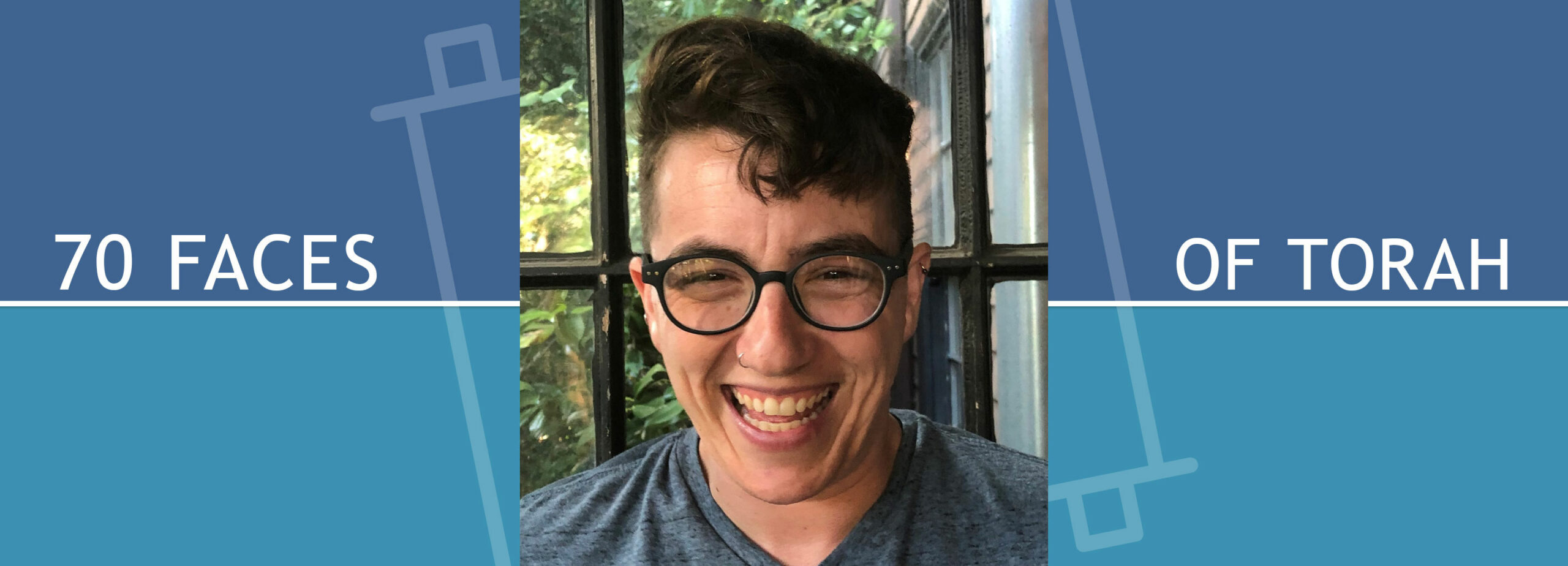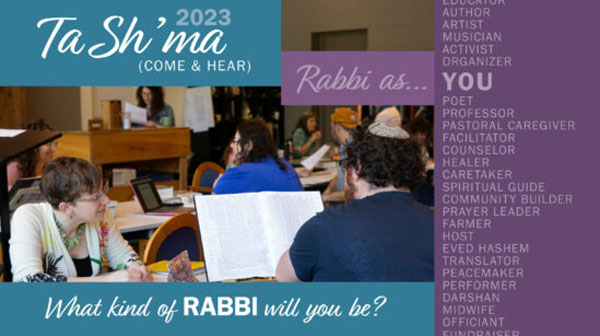Jewish learning Examining the Judges in Our Souls

Parashat Shoftim (Deuteronomy 16:18-21:9)
שֹׁפְטִים וְשֹׁטְרִים תִּתֶּן־לְךָ בְּכׇל־שְׁעָרֶיךָ אֲשֶׁר יְהֹוָה אֱלֹהֶיךָ נֹתֵן לְךָ לִשְׁבָטֶיךָ וְשָׁפְטוּ אֶת־הָעָם מִשְׁפַּט־צֶדֶק׃
You shall appoint judges and officials for your tribes, in all the settlements that the LORD your God is giving you, and they shall govern the people with due justice (Deut. 16:18).
These opening lines to our parashah feel like an all too easy opportunity to wax poetic about the failings of our current judicial system, both in the US and in Israel. They push us to question whether the systems we call “just” actually live up to our standards of justice.
But reading these words in this season, as Av turns into Elul, they also call for a more internal examination. Our Chassidic masters perceive this line to be less about our communal justice and more about our own hearts and souls. In the Mei HaShiloach, a 19th century work by Reb Mordechai Leiner, also known as the Ishbitzer Rebbe, we read:
שעריך היינו לעשות שופטים בכלל ובפרט, בכל המדינה ובכל עיר, וכן הוא בכל נפש. שעריך הן ז’ שערים שבנפש שבהן האדם מקבל טובה והן ב’ עינים ב’ אזנים ב’ נקבי האף (כי באף ג”כ האדם מקבל כי מריח איזה דבר השייך לו) ופה, ובכל שער שאדם מקבל טובה צריך חשבון גדול.
“Your gates” means to make judges in general and in particular, in every state and every city, and in every person’s soul. “Your gates” are the seven gates of the soul by which a person receives goodness: the two eyes, the two ears, the two nostrils (for a person receives some sort of messaging even through smell), and the mouth. A person must make a great reckoning for every gate through which he receives goodness.
That is to say, it is our job to ensure that we have judges stationed between us and our experience of the world, analyzing all of the sensory input we encounter. And our work in this season of reflection and repentance is to ask ourselves, what is the state of the judicial system we set up internally? How do we respond to the changing landscape around us? How are we integrating new ideas or information? How have we grown? Where have we been misinformed?
Much of the conversation about this kind of self-appraisal is about what we keep out—are we being led astray? Are we letting false influences take root within our gates? But we must be equally concerned with what we let in. Our sources state unequivocally that a necessary quality for a judge is to be open to all the possibilities of the case before them—not to come in with a case already decided, not to shy away from rulings that may be unpopular or challenge the status quo.
So, too, with our internal judges.
There have been a few moments in the course of my life where I’ve had massive changes in my sense of self. Beliefs that I held dearly, identities I felt rooted in, were uprooted and replaced. Thinking about them, I feel a pang in my chest remembering the confusing days that preceded these changes, when my internal judges and guards were off base, trying to keep out the inclinations that, ultimately, were true and just.
For just one example, I’m thinking about the years upon years I spent denying the possibility that the feelings I had were queer crushes, or that my yearning to dress like the boys at the school dances stemmed from a deeper truth about my own queerness. It took years for my internal judges to finally allow the fullness of my identity to take root within my gates, for rightness and balance be permitted, despite the fact that it shook my foundation.
And this is just one such moment. I’ve had others: political stances I held dear, perceptions of people around me I clung to, and ideas about what my future held guided my actions far past their time. In each of these moments, truths that sought to make their way from the world, through my senses, and into my heart were thwarted by an internal justice system that needed reworking. In retrospect, I can see how this denial was often active, conscious, and sometimes painful. Only after deep, honest accounting of my soul was I able to internalize the messages I was getting from the world and allow justice to prevail.
So often, experiences, ideas, and stories approach us, seeking to settle in our hearts and become a part of us. Some of those ideas are certainly wrong or dangerous and deserve the rough hand of a guard and the harsh decree of our inner judge. But many of them contain more truth than is easy to admit. Many of them are pointing us towards living with more integrity, towards enacting more righteousness in the world, but are met with a harsh judge—one who comes to the case with the decision already made, the response already formulated, the talking points already drafted.
This Elul, I wish for us all the opportunity to examine the judges and guards that protect our hearts and ask, what are the truths that we’re refusing to allow in? Have our judgements been aligned with the reality we witness and experience, or are they turning away from witnesses and relying on preconceptions? May we greet 5784 having honestly reckoned with the world around us and with hearts open to the many possibilities for justice, righteousness and liberation that we encounter.
Please contact the author if you would like to share feedback.
Rabbi Frankie Sandmel (they/them), Hebrew College ‘22, runs Base Bay where, together with their partner Elaina, they are building a vibrant, rooted, and resonant Jewish community out of their home in Oakland. In their free time, Frankie is a fellow with SVARA: A Traditionally Radical Yeshiva and they bake a lot of cookies.
Learn more about Hebrew College’s rabbinical and cantorial programs at Ta Sh’ma (Come & Hear), our November Open Houses (in-person & virtual options).


